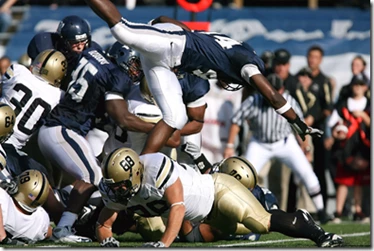 Here's another exam question that includes content you may not have encountered during your social work education, practice, or in your preparations for the ASWB exam. That doesn't mean you can't answer it. Common sense and good test-taking skills will get you to the correct answer on questions like these.
Here's another exam question that includes content you may not have encountered during your social work education, practice, or in your preparations for the ASWB exam. That doesn't mean you can't answer it. Common sense and good test-taking skills will get you to the correct answer on questions like these.
A 55-year-old man meets with a social worker after being diagnosed by his primary care physician with post-concussion syndrome. He has been experiencing short-term memory problems and can't return to his job as an electrician until his symptoms resolve. He has been experiencing depression since being out of work. What treatment interventions are likely to be MOST helpful?
A. Cognitive therapy to help him identify and replace cognitive distortions related to his memory loss.
B. Solution-focused therapy to help him identify what he can do to return to work.
C. The client is not a good candidate for services, since his depression is caused by a medical issue.
D. Short-term behavior therapy to help him find strategies to cope with his memory loss.
What's your answer? Are you sure? Commit to it. Maybe write it down on a piece of scratch paper. To get through the social work licensing exam means committing to 170 answers whether you're certain about them or not.
Let's take the answers one at a time.
A. CBT. Hmm, might work. But isn't CBT a little iffy when someone is encountering memory issues? Will the candidate be able to keep a thought log? Would he be able to identify and replace cognitive distortions? Let's mark that as a leans-no maybe.
B. Solution-focused therapy. Again, hmmm (not sure). Since the client is an electrician, there are safety concerns about his return to work. Is returning to work the first priority here? It may be that coping with the symptoms of post-concussion syndrome ought to take precedence. Let's plant another leans-no maybe. Leaning a little bit harder no this time.
C. No services. Is this ever the case? The client may not a good candidate for any and all services, but surely can benefit from some help. Looks like we can safely strike this one.
D. Short-term behavioral therapy. This doesn't feel like the perfect answer, but could it be the best of the bunch? It addresses the memory issue head-on while also addressing coping (aka decreasing the reported anxiety and depression). If you're guessing that post-concussion syndrome can lead to depression and anxiety, you'd be right. Learning strategies to cope with his memory loss may be helpful. Looks pretty good.
So we're left with two-and-a-half contenders. CBT, solution-focused therapy, and short-term behavioral therapy. Choosing the best of these isn't just about the interventions, it's about how they'd be used. CBT, sure. CBT is a wide-ranging collection of interventions. But CBT to address cognitive distortions? That's not really what's needed here. And we were already leaning no on solution-focused therapy.
Could D be the right answer?
Well, it may not be the best possible answer, but it's the best of the offered answers. If that's what you wrote down, then...congratulations. You got this one right.
Keep on practicing. Our full-length exams have lots and lots of questions, all with thorough rationales to get you good and ready come exam time.
Happy, safe studying and good luck on the exam!

 Here's another exam question that includes content you may not have encountered during your social work education, practice, or in your preparations for the ASWB exam. That doesn't mean you can't answer it. Common sense and good test-taking skills will get you to the correct answer on questions like these.
Here's another exam question that includes content you may not have encountered during your social work education, practice, or in your preparations for the ASWB exam. That doesn't mean you can't answer it. Common sense and good test-taking skills will get you to the correct answer on questions like these.